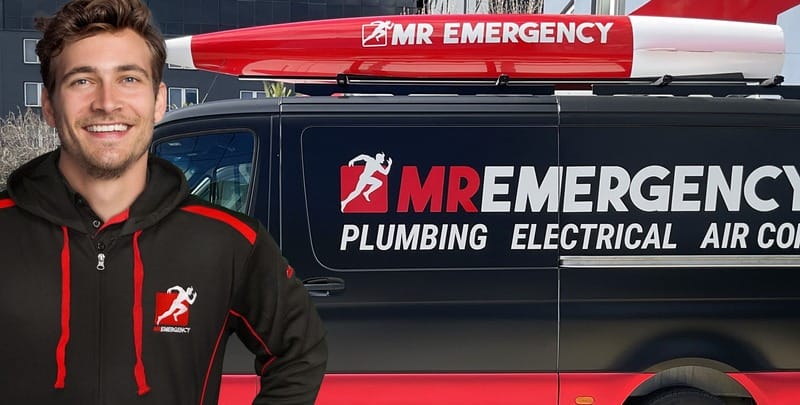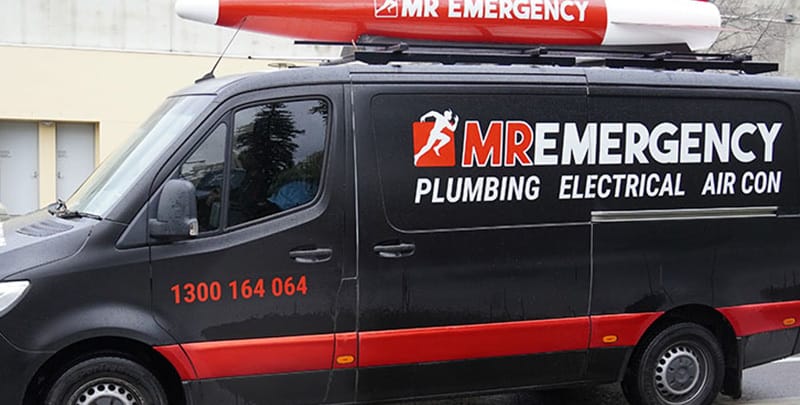
Resolve Your Pipework and Plumbing Issues with Ease
When you’ve got a stubborn plumbing problem in or around your home, the last thing you want is to be left in the dark. One of the most effective ways to really determine what is giving your pipes unwanted grief is with a drain camera inspection.
With the winning combination of a sewer camera and a real-time live video feed, plumbers can conduct thorough CCTV inspection surveys that determine the exact location where blockages, leaks or structural damage have occurred deep within your sewer lines. That’s a fast, non-invasive method using cutting-edge technology that eliminates guesswork and helps prevent further damage to your home.
Let’s take a look at what to expect when you need a local licensed plumber armed with a pipe camera for a CCTV inspection on your property.
What is a Drain Camera Inspection?
A drain camera inspection involves a small, waterproof sewer camera that is attached to a flexible cable. A plumber will typically use it to examine the inside of your blocked drains and pipes.
You get a real-time video feed back to a monitor that could potentially show you any of the following:
- foreign objects
- tree root intrusions
- pipe corrosion
- cracks
- signs of pipe collapse
Compared to traditional methods of identifying issues in your pipes, a camera inspection is especially ideal for those in tight spaces or inaccessible areas.

Why Drain Camera Inspections Are So Effective
If there are two key benefits of a drain inspection with a sewer camera, the speed and accuracy with which it does the job would be at the top of the list.
A camera inspection provides fast, clear insights with minimal disruption at best. It lets plumbers visually inspect the inside of your drains and pipes without needing to excavate to find out what’s going on. It’s perfect for locating blocked drains, tree root intrusions or other issues.
The CCTV drain inspection process is safe for all plumbing systems and uses durable materials to navigate tight spaces and underground pipes. It also helps prevent further damage by catching problems early.
The Step-by-Step Process of a CCTV Drain Inspection
So when you call a plumber to arrange a drain camera inspection, and they arrive at your doorstep with tools and equipment in hand, what happens next?
Thankfully, the process itself is rather straightforward. Here’s what happens:
- You and the plumber will discuss the problem and determine a suitable access point for the drain camera.
- Using a flexible cable, they will feed the CCTV drain camera into the pipe.
- As the camera moves through, it sends a real-time video feed to a monitor, clearly showing any blockages, damage or foreign objects.
- Based on the footage, your plumber provides an accurate diagnosis and suggests cost-effective solutions.
That gives you a clear picture of your drainage system without any digging. And that saves you time, money and unnecessary mess.

Common Issues Found During CCTV Inspections
A CCTV drain inspection can potentially reveal several hidden problems that might affect your drainage system or even your plumbing as a whole. Among them are:
- Blocked drains caused by grease, hair or foreign objects.
- Intrusive tree roots breaking through into underground pipes.
- Pipe corrosion that has weakened older metal pipes
- Small cracks that lead to serious water damage.
- Collapsed pipes that affect water flow and drainage.
- Structural damage from shifting soil or age-related wear.
Spotting these problems early with a CCTV drain camera helps prevent further damage and supports more targeted, cost-effective repairs.
Why You Should Always Use a Licensed Plumber
When you need a drain camera inspection, you want a licensed plumber who knows what they’re doing. They’ll use the right equipment and techniques to get to the bottom of your plumbing problem.
The quality of your CCTV drain inspection will only ever be as good as the person operating the drain camera, which is why you want a licensed plumber as your Sewer Spielberg (apologies to Steven). They know exactly how to use the equipment to get the needed result from the inspection, all without causing any damage to your plumbing system.
A licensed CCTV survey operator knows how to navigate hard-to-reach spaces, use the latest technology and give you a detailed report that you might need for insurance claims. What’s more, they can offer cost-effective solutions based on what the camera finds. That saves you time, money and the hassle of repeat problems in the future.
By law, if it turns out that you need to alter any pipework, only a licensed plumber can legally do so.

How a Drain Camera Inspection Might Save You Money
Just how a drain camera inspection can possibly save you money is a no-brainer for property owners with stubborn plumbing issues.
By using a CCTV camera to give your pipes the detailed inspection they need, plumbers can use real-time video footage to quickly pinpoint where the problem is without any unnecessary digging. That means less time, less mess and no guesswork.
With a clearer understanding of the damage, you’re more likely to get a cost-effective solution that targets the root cause rather than just some Band-Aid solution. And early detection can prevent further damage-avoiding those expensive repairs or full pipe replacement later on.
See Clearly, Fix Confidently
When it comes to your plumbing system, a drain camera inspection takes the guesswork out of repairs.
With CCTV drain cameras, plumbers can give your pipes a good look over and uncover problems like blockages, tree root intrusions or pipe corrosion without disturbing your garden or floors. The video footage gives you a clear picture of what’s going on, so you can make informed decisions with confidence.
Whether you’re dealing with ongoing plumbing issues or just want peace of mind before buying a property, CCTV inspections offer fast, accurate answers. They’re a cost-effective, non-invasive way to protect your home from further damage and keep your drainage system in top shape.
Please note: Thanks for reading our blog “What to Expect During a Drain Camera Inspection”. This information is provided for advice purposes only. Regulations differ from state to state, so please consult your local authorities or an industry professional before proceeding with any work. See our Terms & Conditions here.


